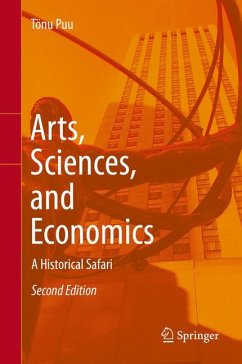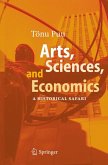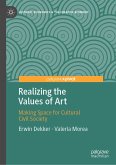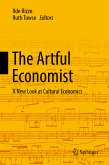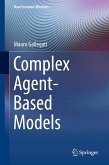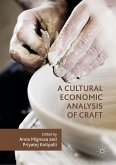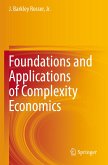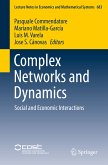The evolution within arts and sciences, which often seems to return to previously scrapped ideals, is illustrated by detailed case studies, in which the importance of changing tastes, rather than progress proper, is emphasized.
The author attempts an understanding for this using Darwinian evolution in combination with modern mathematical complexity theory, expressed in terms accessible to the general reader.
The second edition is extended and updated especially as regards the illustration material.
"Professor Puu (...) introduces a fourthapproach [to cultural economics].
(...) working it like a triangle, Arts, Sciences and Economics is, in a sense, inductive in nature. An observation made in one of the arts or the natural & engineering sciences (henceforth 'sciences') or economics is extended to cover the other two points of the triangle. The temporal plane of this triangle covers the pre-Renaissance to the 21st century with a special and loving emphasis on the Baroque.(...)
Professor Puu's method reminds me of Pascal's Pensées (...), it also reminds me of Goethe (...) Unlike Goethe, however, the 'certain order' achieved by Professor Puu is mathematical rather than intuitive or aesthetic in nature. Underpinning the text is the correlation between Arts, Sciences and Economics through mathematics. And mathematics covers the waterfront from probability to chaos theory (...) This underpinning does, however, reveal Professor Puu as having a very well developed mathematical mind (...). Similarly, his cultural and historical erudition cannot be faulted but rather must be praised. The text is rich in example. (...) This book is not a narrative with a beginning, middle and end. It is Professor Puu's Pensées.
(...) Calculatory rationalism is not the only tool of economics. Arguably, this is one implication of the term 'knowledge-based economy'. To such an economy, however, Professor Puu has made a most valuable and fascinating contribution."(...)
Harry Hillman Chartrand, Book Review in Journal of Cultural Economics, vol. 31, number 1, 2007
Dieser Download kann aus rechtlichen Gründen nur mit Rechnungsadresse in A, B, BG, CY, CZ, D, DK, EW, E, FIN, F, GR, HR, H, IRL, I, LT, L, LR, M, NL, PL, P, R, S, SLO, SK ausgeliefert werden.

